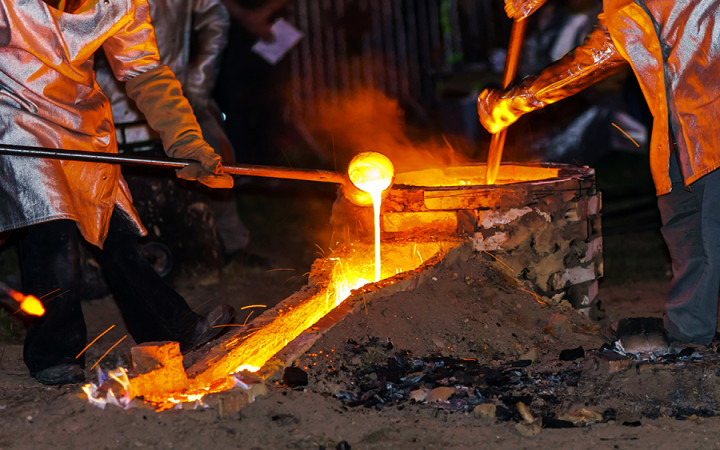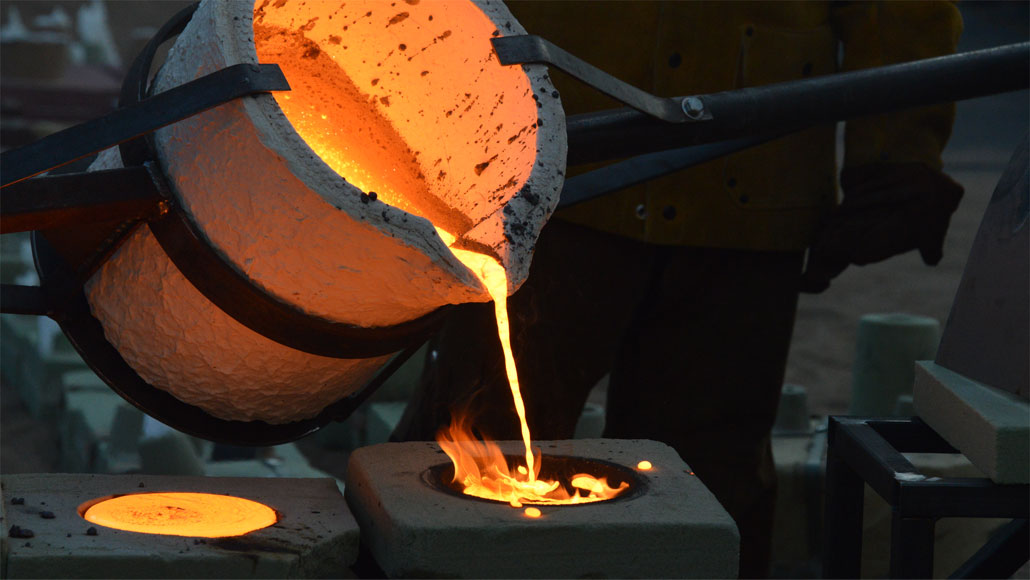Views: 0 Author: Rachel Wynn Publish Time: 2025-07-07 Origin: Site











When selecting materials for metal stamping in high-performance applications, choosing the right alloy is critical. Among the various metals available, Inconel 718 stands out for its outstanding properties, especially in applications where parts need to withstand extreme temperatures, corrosive environments, and mechanical stress. In this blog, we will delve deep into the key benefits of using Inconel 718 in metal stamping and provide a detailed guide on how to choose the right alloy for your project.
Inconel 718 is a nickel-chromium superalloy specifically designed to operate in high-stress and high-temperature environments. It contains nickel, chromium, and small amounts of other elements such as molybdenum, niobium, and titanium. This composition gives Inconel 718 its exceptional strength, corrosion resistance, and ability to retain mechanical properties at elevated temperatures, making it ideal for critical components in industries like aerospace, power generation, and chemical processing.
Nickel (50–55%): Provides excellent resistance to oxidation and corrosion.
Chromium (17–21%): Enhances corrosion resistance.
Molybdenum (2.8–3.3%): Improves strength and resistance to pitting corrosion.
Niobium (4.75–5.5%): Strengthens the alloy by forming stable carbides.
Titanium (0.65–1.15%): Increases strength and hardness.
These elements work together to create an alloy capable of withstanding extreme environments, making Inconel 718 the material of choice for critical applications.

Inconel 718 is a preferred material for metal stamping in several industries due to its unique combination of properties. Let’s explore the main advantages that make this alloy the go-to option for high-performance applications:
Inconel 718 retains its strength even at extremely high temperatures, making it perfect for applications in environments that can reach up to 1300°F (700°C). Unlike many alloys, which lose their structural integrity and strength at elevated temperatures, Inconel 718 maintains its mechanical properties even under extreme thermal conditions. This makes it the ideal material for turbine blades, engine components, and other parts that operate in the aerospace and power generation sectors.
In industries such as aerospace and energy, many parts are exposed to elevated temperatures during operation. If the material can’t maintain its strength at these temperatures, the part may warp, fail, or wear out too quickly. Inconel 718’s high-temperature resistance ensures the durability and performance of critical components over time.
Inconel 718 provides superior resistance to a wide variety of corrosive environments, including saltwater, high-pressure steam, and many chemical processes. The combination of chromium, nickel, and molybdenum in its composition makes it highly resistant to oxidation and corrosion, allowing it to perform in hostile environments where other materials might fail.
Industries such as marine, chemical processing, and oil & gas rely on Inconel 718 for components exposed to corrosive chemicals or seawater. The alloy's resistance to pitting, crevice corrosion, and stress corrosion cracking ensures that the stamped parts last longer and maintain their integrity in harsh conditions.
Fatigue and creep are two common failure modes in high-stress and high-temperature environments. Fatigue occurs when materials undergo repeated loading and unloading, leading to cracks and eventual failure. Creep is the gradual deformation of materials under constant stress, especially at elevated temperatures.
Inconel 718 has outstanding resistance to both fatigue and creep, making it suitable for applications in industries where parts experience continuous stress, such as turbine engines or rocket propulsion systems. This resistance ensures that parts maintain their strength and shape over extended periods of operation, even under severe conditions.
Despite being a high-strength superalloy, Inconel 718 is also known for its weldability and formability. These properties make it easier to work with during the metal stamping process, reducing the complexity of manufacturing and allowing for more intricate designs. This is particularly important in industries where parts need to be precision-stamped or welded, such as in aerospace and automotive industries.
Easy weldability allows manufacturers to join Inconel 718 to other materials or create complex part geometries, improving overall design flexibility. This is crucial for industries where intricate designs and high performance are required.
The combination of high strength, temperature resistance, and corrosion resistance ensures the long-term durability and reliability of Inconel 718 components. Parts made from this alloy can continue to perform at high levels for extended periods, even in the most demanding conditions. This makes it an excellent choice for mission-critical components that cannot afford failure, such as in aerospace and power generation applications.

When selecting the right material for metal stamping, it’s important to consider several factors to ensure the alloy will meet the performance and cost requirements of your project. Here are some key considerations when choosing Inconel 718 or any other alloy:
If your parts will be exposed to extreme temperatures, high mechanical stress, or corrosive environments, Inconel 718 is an excellent choice due to its high-temperature stability and corrosion resistance. However, if your application doesn't require such extreme conditions, a more cost-effective material like stainless steel might be sufficient.
Evaluate the mechanical properties of the alloy and whether it matches the strength and durability requirements of your parts. Inconel 718 excels in applications that require high tensile strength and fatigue resistance, making it the ideal choice for critical applications where failure is not an option.
While Inconel 718 offers unmatched performance, it comes with a higher cost compared to other materials. If cost is a significant factor and the material will not be subjected to extreme conditions, alternatives like stainless steel or aluminum may be more cost-effective options.
Consider how easy the material will be to machine, form, and weld. Inconel 718 has good workability for a superalloy, but if your parts require complex shaping or high volumes, it may increase manufacturing costs. Depending on the design complexity and production volume, choosing the right alloy can impact your manufacturing efficiency.
Inconel 718 is a top-tier material for metal stamping in industries where parts must endure extreme conditions. Its ability to resist high temperatures, corrosion, and fatigue, along with its long-term durability, makes it the go-to alloy for critical components in aerospace, power generation, and chemical processing. However, it’s important to assess your project’s specific needs—considering temperature, strength, corrosion resistance, and cost—before choosing Inconel 718 over other alloys.






